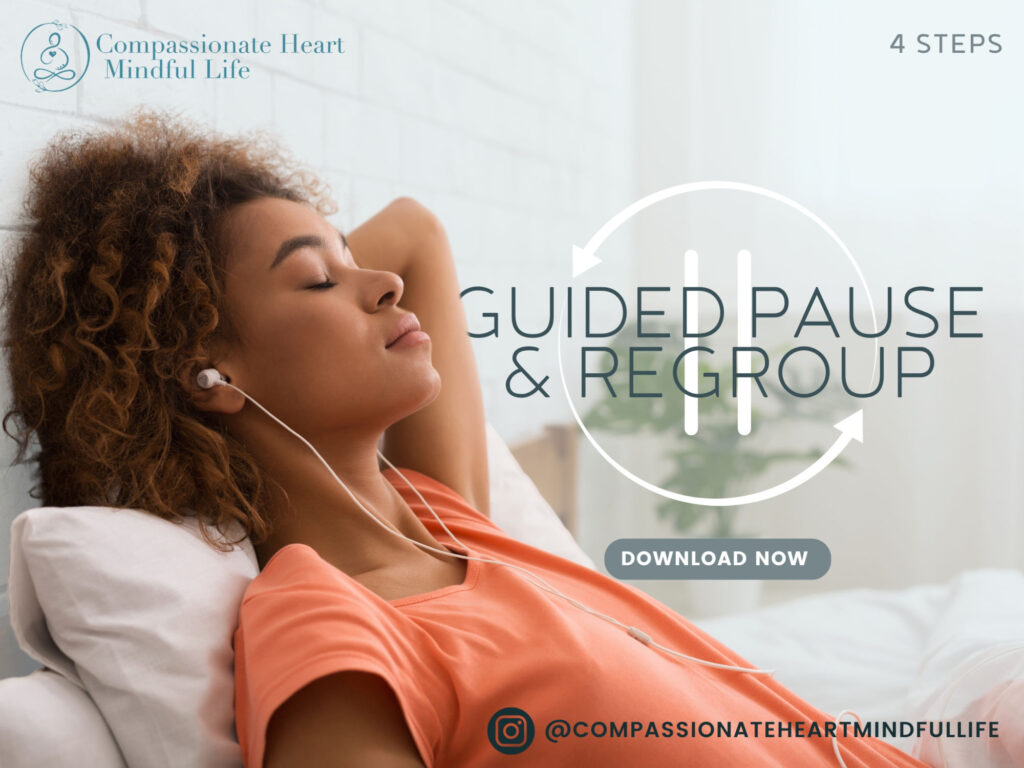In my recovery from parenting burnout, I learned an invaluable truth. That when I was struggling, it wasn’t because I was failing, it was because I was under-resourced. At first, this was a relief. I felt less strangled by the belief that I was failing in parenting and in life. Eventually, another judgment took its place. “I’m running, journaling, talking to a therapist, and I’m still under-resourced. What’s wrong with me? Why do I need so much self-care just to feel balanced?” This cycle of questioning became another instance of the ‘second arrow’ in my journey.

Meditation teachers call this the second arrow. The first arrow, in this case, is the feeling of being overwhelmed. The second arrow is our judgment about that feeling, “What’s wrong with me?” In psychology, we call this meta-emotion, i.e. how we feel about our feelings. I was bleeding out from the second arrow. I felt that anytime I had any negative emotions it was my fault and I was failing. When that lightened a little it morphed into, “OK I am under-resourced, but why? I ran today. I’m meditating. I’m talking to a parenting coach. What’s wrong with me that all of that isn’t enough?” I gave myself zero space to have a bad day or a bad week. Zero space that maybe all the great things I was doing were helping and I could still feel overwhelmed at times.
Ultimately, self-compassion became an invaluable tool and antidote for my perfectionism and inner critic. Mindful meditation and self-compassion taught me to bring nonjudgmental awareness to whatever my current experience was. If I felt overwhelmed, I noticed I feel overwhelmed. “This is the feeling of being overwhelmed and under-resourced.” If my next thought was judgment as described above. I would note, “Judging.”
I would try to accept all these emotions. “Welcome to the party overwhelm.” “Welcome to the party, judging mind.” (Thank you to meditation teacher Jeff Warren for this beautiful invitation to accept all of our emotions.) From this space I would try to ask myself, “What do I need here?” I needed to know it was understandable that I was having a hard time. There wasn’t anything wrong with me and I wasn’t failing or not doing enough. I would picture my parenting coach saying to me what she said 100 times over zoom. “Oh sweetheart this is hard, you are doing the best you can and you are a good mum.” (she’s English)
Sometimes our judgment of our emotions can be more painful than the emotion itself. Also, our judgment can be covert and sneaky, and possibly hard to detect at first. We cannot change our emotions or keep ourselves from having emotions. We can practice holding ourselves and our emotions and nonjudgmental compassion. Freeing ourselves from judgment may also allow the emotion to pass through more quickly.
Quick win
Can you catch your second arrow? First notice when you are having an uncomfortable emotion such as anger, frustration, rage, envy, sadness, etc. Then ask yourself how you are feeling about that emotion. Is there judgment there? If so, what does it sound like? What does it say to you about having the emotion in the first place? Can you welcome both your difficult emotion and your judgment to the party?
I’d love to hear how it goes, email or DM me on instagram your win catching your second arrow.

I have a free gift for you, our 4 step Guided Pause & Regroup, a free audio pause for when you are about to lose or have just lost it with your kids and you need a moment to regroup. Find the audio download in the links. I created this Guided Pause & Regroup because it is exactly what I needed when I was struggling with anger and yelling in parenting.
Thank you so much for listening. Be Well!
A reminder
This content is intended for educational purposes only and should not be used as a replacement for private psychotherapy services. Compassionate Heart Mindful Life does not provide psychotherapy services in any capacity.
I am a therapist but I am not your therapist and this is not therapy and should not be a substitute for mental health treatment. If you need mental health treatment please find a qualified professional in your area.
